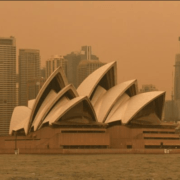Amsterdam, 22 December 2019 – Managers of sports fields are responsible for the rubber granulate found outside the artificial turf fields. This groundbreaking ruling by the District Court in Rotterdam may restrict the application of rubber granules on the artificial turf at home and abroad because it is practically impossible to prevent them from ending up outside the pitches. The public prosecutor stated that more criminal cases will follow.
Discarded car tires end up as rubber grains on artificial turf fields. These grains do not all remain on the fields and end up in the surface water via drainage. Assuming 1,800 artificial turf sports pitches in the Netherlands, 720,000 kilos end up in the environment every year, as much as 400 kilos per sports pitch. These ‘escaped’ grains are refilled. Heavy metals and chemicals end up in the soil as a result of leaching. Metals such as zinc and cobalt are harmful to soil life. The grains also break down into microplastics.
Corridor to the right pays off
Recycling Network Benelux filed a declaration in 2017 because heavy metals present in the rubber granulate are leaking into the environment. In particular, the standards for zinc are or will be exceeded over time. The complaint about large-scale environmental violations with car tire waste led to the criminal case against Sportaal, the sports company of the municipality of Enschede. The court ruled that there was a violation of article 13 of the Soil Protection Act and imposed a fine of 10,000 Euro. Read a summary of the hearing here.
Duty of care cannot be complied with
Sportaal had not fulfilled its duty of care to prevent soil pollution. The National Institute for Public Health and the Environment (RIVM) previously advised taking measures to prevent the spreading of the granules. Recently, the Branchevereniging Sport en Cultuurtechniek (BSNC) published a new duty of care document with recommendations for measures to be taken by managers of sports fields. If no measures are taken, BSNC fears a ban on rubber granules.
In practice, however, it turns out to be virtually impossible to prevent the grains from spreading outside the fields. The main cause is that athletes walk the pellets out of the field. According to reports in the NRC, there is also hardly any monitoring of the measures taken; there is no enforcement of the duty of care.
The judgment sets a precedent
During the judicial investigation, grains were found up to fifteen meters from the fields and police inspectors saw that Sportaal had not taken any measures to prevent them from spreading. The blending of rubber granules with the soil was found. The judge ruled that the duty to prevent soil pollution had not been complied with. This sets an interesting precedent because the problem also occurs elsewhere. If, for example, polyflakes in horseboxes or plastic nurdles from the plastics industry will also be assessed in a similar manner, this will be of great benefit to the environment.
Photo: recyclingnetwork.org










